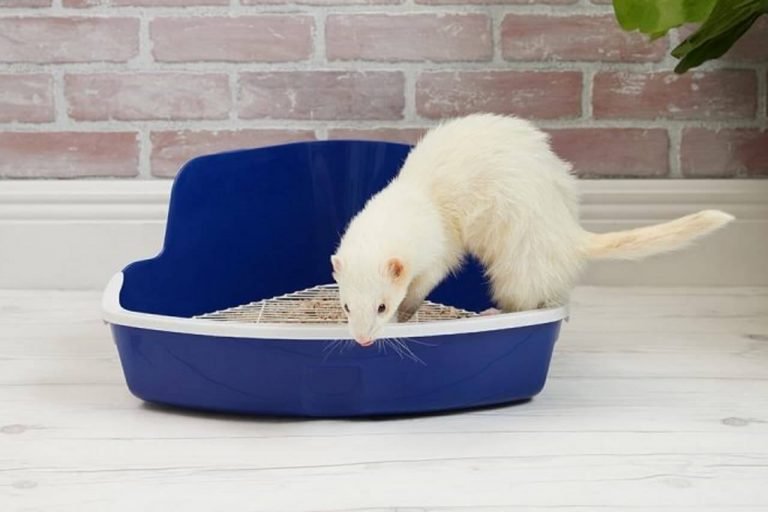How to Get Rid of Fleas on Ferrets?
Your ferret, that playful, furry companion, can get fleas. Yes, even these amazing pets are not safe from those tiny pests. Whether your ferret lives inside your home or enjoys time outdoors, fleas can find them, especially when it’s warm.
You need to know how to spot these unwelcome visitors. More importantly, you need to know how to get rid of them for good.
What Are Fleas?
Fleas are tiny, wingless insects. They feed on blood from animals and humans. These parasites need blood to live and reproduce.
They start outdoors in damp, shady spots like shrubs or leaves. Then, they jump onto a host animal to get into your home. They cause harm to their host, so we call them parasites.
Here’s what they look like:
- They are very small, about 3 mm long.
- They have no wings.
- They are usually dark brown.
- Their strong back legs let them jump far. This helps them find new hosts and spread quickly.
Fleas attach to many house pets. This includes dogs, cats, rabbits, guinea pigs, hamsters, and ferrets. They can also hitch rides on birds like pigeons or chickens, spreading even further.
How do Ferrets Catch Fleas?
It’s not very common for a ferret living only indoors to pick up fleas. But, if you have other pets, like a dog or a cat, your ferret’s risk goes up. Dogs and cats often go outside for walks or to parks.
They can pick up fleas outside and bring them into your house. Fleas can then jump from your other pets to your ferret, especially if they play together. If your ferret explores your backyard or garden, they can also pick up fleas directly.
Because of this, “cat fleas” (Ctenocephalides felis) are the most common type found on ferrets. “Dog fleas” (Ctenocephalides canis) can also infest ferrets, though it’s less frequent.
Ferrets can also catch fleas from furniture with dormant flea eggs. Fleas do best in warm, moist places. They don’t like cold weather, but they can survive it. Research reveals that flea eggs can stay dormant for up to two years in things like furniture or clothes. So, if you bring used furniture into a warm home, those fleas can “wake up” and cause a problem for your pets, including your ferret.
How Harmful are Fleas to Ferrets?
Fleas can cause serious health issues for your ferret if you don’t treat them. First, they need blood to survive and reproduce. Female fleas need blood to lay their eggs, often doing so just two days after feeding.
A severe flea problem can lead to anemia in your ferret. Fleas drain a lot of blood. Blood carries oxygen and nutrients to all of your ferret’s body parts. Anemia means a lack of healthy red blood cells, which can make your ferret weak.
Flea droppings, sometimes called “flea dirt,” can cause allergic reactions. Some ferrets have sensitive skin. This can lead to skin bumps, sores, or even secondary bacterial or fungal infections. These infections can be quite risky for your ferret’s health.
Also, fleas can carry other parasites and germs. These can pass to your ferret, or even to you, when the flea feeds. For example, fleas can carry tapeworm eggs. Your ferret might swallow these eggs while grooming itself.
Tapeworms cause problems like:
- Diarrhea
- Loss of appetite
- Vomiting
- Weight loss
These worms steal nutrients, which can lead to malnourishment for your ferret.
Symptoms Present in Ferrets
Ferrets don’t always show symptoms right away. They’re pretty tough. But you might notice your ferret biting or scratching itself a lot in certain spots. Allergic reactions are common.
Signs your ferret might have fleas:
- Hair loss or small bald patches
- Red, swollen spots or sores on the skin
- Discharge from skin infections
- Weakness or tiredness (from anemia)
- Fast heartbeat
- Not wanting to eat
- Diarrhea, fever, eye discharge, or vomiting (if other parasites are involved)
When you groom your ferret, you might see small, dark fleas moving on their fur or skin. Or, you might see “flea dirt” fall off as you comb. Flea droppings look like tiny grains of pepper and are often comma-shaped.
Is it Necessary to Visit a Veterinarian?
It’s a good idea to talk to your vet before you start any flea treatments for your ferret. Even if you’ve seen fleas, and they seem like the clear cause of itching or hair loss, other things can cause these symptoms.
Your vet can properly check your ferret’s health. They will figure out the best treatment plan. Your ferret might have other parasites, which means different medicine is needed. Plus, your vet can find other health issues you might not know about.
Providing your ferret with the best quality of life is always the main goal. Once your vet gives a diagnosis, be sure to follow their directions. This helps your beloved pet get better fast.
How to Get Rid of Fleas?
To completely get rid of fleas from your home and pets, you need to treat both the environment and your animals.
How to Remove Fleas from your Home?
First, wash all bedding and clothing in hot water. This kills any fleas present. Next, treat your floors and carpets with flea powder. Then, use a vacuum cleaner on all carpets and furniture.
You also need to wash your ferret’s cage and bedding. Use soap and hot water. For the next month, change your ferret’s bedding at least three times a week. This helps ensure all fleas are gone.
For very bad flea problems, you might use a “bug-bomb” to clear your home. This usually involves two steps. Always talk to your vet first about which insecticide won’t harm your ferret. The first treatment kills adult fleas and larvae. The second treatment, applied about three to four weeks later, kills any remaining eggs in furniture and carpets.
When using a bug-bomb, make sure your ferret and any other pets are out of the house. Some insect sprays are safer for pets, but they can still cause issues like upset stomachs or irritation.
How to Treat Fleas on Ferrets?
A flea shampoo is often the best choice for treating your ferret. Check the ingredients carefully. It must not contain organophosphates, distillates, or carbamates. These are bad for your ferret. Look for shampoos based on pyrethrins. You might need to use this shampoo once a week for two to three months, or until you don’t see any more fleas when you comb your ferret’s fur.
Other flea products like powders, creams, or sprays are available. But it’s best to ask your vet for advice. They can help you pick the safest and most effective option for your ferret. Your vet might also give anti-inflammatory medicine or antibiotics if your ferret has a skin infection or irritation.
Always avoid ferret flea collars. They often have a substance called dichlorvos, which is toxic to ferrets. It can cause allergies and other serious health problems. Cedar oils are also harmful to many pets, including ferrets, and should be avoided.
Some people also use apple cider vinegar in their ferret’s water bowl. A common tip is that adding three tablespoons of apple cider vinegar to a gallon of water can make your ferret’s blood less appealing to fleas and ticks, helping to cut down on infestations. This method is also suggested for other pets in the house.
Check your home and outdoor areas regularly to make sure fleas are not present. You want your furry friend to be as lively as ever. A healthy ferret is a happy ferret, and sometimes, that’s all you truly need.






